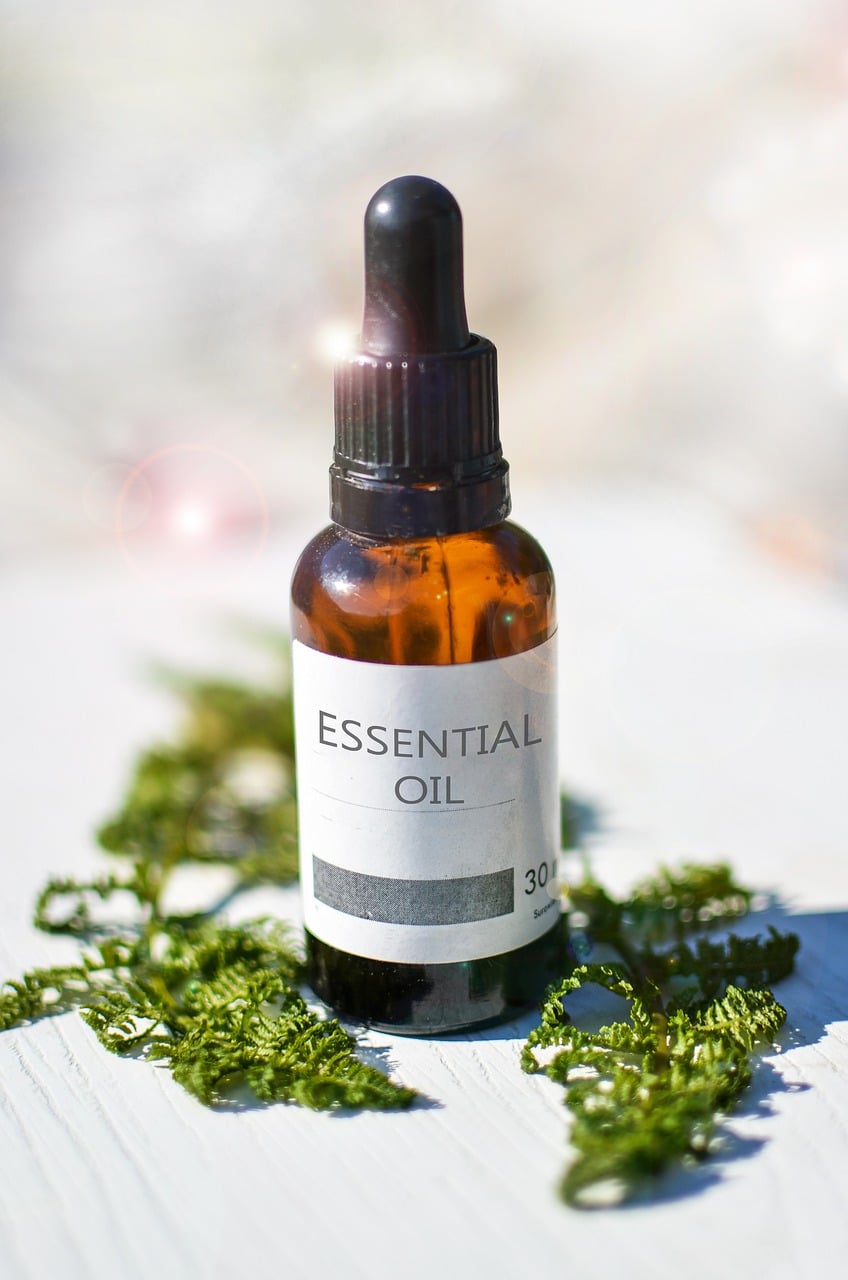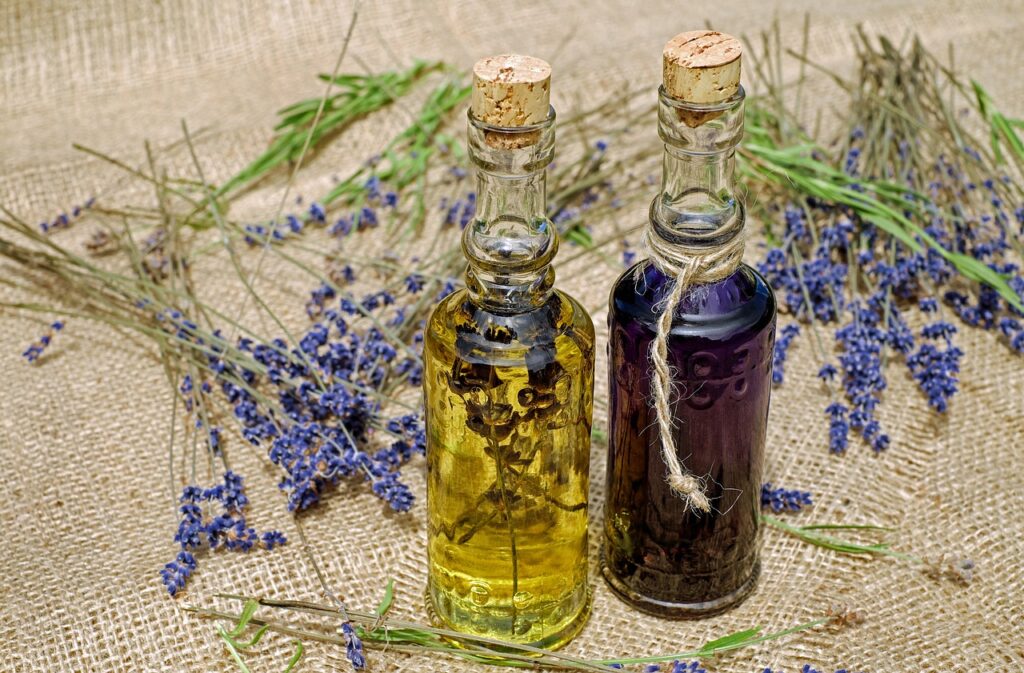Physical Address
304 North Cardinal St.
Dorchester Center, MA 02124
Physical Address
304 North Cardinal St.
Dorchester Center, MA 02124

In today’s fast-paced world, stress has become an unavoidable part of life. Work deadlines, personal responsibilities, and constant digital distractions can take a toll on mental well-being. Fortunately, aromatherapy and essential oils offer a natural, soothing solution to help you de-stress and regain balance. The power of scent has long been recognized for its ability to influence emotions, and essential oils can play a crucial role in calming the mind and body. But how does aromatherapy work, and which essential oils are best for relaxation? Let’s explore the science behind aromatherapy and the best essential oils to reduce stress and promote a sense of calm.

Aromatherapy is a holistic healing practice that uses natural plant extracts, specifically essential oils, to enhance emotional and physical well-being. These potent oils are extracted from flowers, leaves, bark, and roots and are highly concentrated, carrying the pure essence of the plant.
When inhaled, essential oil molecules stimulate the olfactory system, which directly connects to the brain’s limbic system—the area responsible for emotions, memory, and behavior. This interaction can trigger the release of neurotransmitters such as serotonin and dopamine, helping to reduce stress and enhance mood naturally. Additionally, when applied topically (properly diluted with a carrier oil), essential oils can promote relaxation through skin absorption and massage.
Aromatherapy and essential oils are incredibly versatile, but some oils stand out for their powerful stress-relieving properties. Here are the best essential oils to help you de-stress:
Lavender essential oil is widely regarded as one of the most effective natural remedies for stress and anxiety. Its floral scent has a calming effect on the nervous system, reducing tension and promoting better sleep.
Chamomile essential oil is known for its mild sedative properties, making it perfect for calming both the mind and body. It’s commonly used to alleviate anxiety and encourage a sense of peace.
Bergamot essential oil has a unique citrusy aroma that is both uplifting and calming. Studies have shown that bergamot can lower stress levels and improve mood by reducing the production of cortisol.
Ylang-ylang essential oil is known for its ability to reduce heart rate and blood pressure, making it an excellent choice for managing stress and promoting relaxation.
Frankincense has been used for centuries in meditation and spiritual practices due to its grounding and calming effects. It helps slow down breathing, creating a sense of deep relaxation.
Understanding the best ways to incorporate aromatherapy and essential oils into your daily routine can maximize their stress-relieving benefits. Here are some effective methods:
Using a diffuser disperses essential oil molecules into the air, allowing you to breathe them in effortlessly.
Massaging essential oils into the skin provides both aromatic and tactile stress relief.
Adding essential oils to a warm bath can elevate relaxation and help unwind after a stressful day.
While essential oils offer incredible stress-relieving benefits, it’s crucial to use them safely. Essential oils are highly concentrated and can cause adverse reactions if not used properly. Here are some essential safety guidelines to keep in mind:
Never apply essential oils directly to the skin without diluting them with a carrier oil like coconut, jojoba, or almond oil. A safe ratio is typically 3–5 drops of essential oil per teaspoon of carrier oil.
Before applying a new essential oil to your skin, perform a patch test. Apply a small amount of the diluted oil to a small area on your wrist or forearm and wait 24 hours to check for irritation or allergic reactions.
Although some sources may recommend internal use, ingesting essential oils can be harmful. Most essential oils are not meant for consumption unless prescribed by a qualified healthcare professional.
Certain essential oils, such as tea tree, eucalyptus, and peppermint, can be toxic to pets and young children. Always store oils out of their reach and avoid diffusing them in enclosed spaces where pets reside.
Pregnant women, individuals with respiratory issues, and those with underlying health conditions should consult a healthcare provider before using essential oils. Some oils, like rosemary and clary sage, can trigger unwanted effects during pregnancy.
Blending essential oils can enhance their benefits, creating a well-rounded and customized stress-relief experience. Here are a few DIY blends to try:
Great for nighttime relaxation and deep sleep.
Use in a diffuser or apply (diluted) to your pulse points before bed.
Perfect for lifting your mood and reducing tension.
Diffuse during the day or inhale deeply from a tissue for quick relief.
Ideal for grounding and promoting mental clarity.
Use in a diffuser while meditating or add to a roller bottle with a carrier oil for topical application.
Making aromatherapy a part of your daily life can help you manage stress more effectively. Here’s how to incorporate it into different moments of your day:
Start your day with an uplifting essential oil like bergamot or citrus oils in your shower or diffuser to promote a positive mindset.
If you feel overwhelmed at work, take a few minutes to inhale calming essential oils like lavender or chamomile directly from the bottle or use a personal inhaler.
Diffuse stress-relieving oils like ylang-ylang or frankincense in your bedroom while reading or relaxing to transition into a peaceful night.
Carry a roller bottle blend or a small inhaler with your favorite calming oils to use whenever stress strikes.
Aromatherapy and essential oils offer a natural, effective way to reduce stress, enhance relaxation, and improve overall well-being. Whether you use them in a diffuser, as part of a massage, or in a warm bath, incorporating these oils into your routine can help create a sense of balance and peace.
Are you ready to experience the benefits of aromatherapy for yourself? Start with one of the essential oils mentioned and experiment with different application methods to find what works best for you. Let us know in the comments—what’s your favorite essential oil for stress relief?